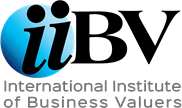Interview with Liying Han – China Appraisal Society
1-You have a PhD in Economics, a rich history of involvement with regulatory organizations, and your work with the China Appraisal Society. What do you find interesting about the valuation profession?
Over the past 20 years with China Appraisal Society, I have witnessed the rapid development of the China valuation profession. I have deep feelings for the profession and I am concerned with its development. The valuation profession evolves constantly. It provides a wide range of professional services and involves multiple asset types. Valuers can help clients define assets value, which protects the interests of asset owners, stakeholders and the public. In addition, it can promote fair trading and service, and maintain market order. As a part of this valuation professional organization, I think it is very meaningful to contribute to the development of this profession. Especially in China, as the demand for valuation services is continuously expanding, the social influence and credibility of the profession at home and abroad growing, and the exchange with domestic and international peers deepening, I feel pleased and proud to devote my due share to the valuation profession.
2-Chinese firms have been increasing their investment in the United States, from Anbang Insurance buying the Waldorf Astoria hotel, to Shuanghui International acquiring Smithfield Foods, and Dalian Wanda acquiring AMC Entertainment. I’m often asked by valuers in the US, how can they do business with these Chinese buyers? Any advice for them?
As you said, China’s overseas investment has been constantly expanding in recent years. However, it is just the beginning stages for Chinese firms to go global. Therefore, Chinese investors are not very familiar with foreign policies, economic conditions, laws and regulations, and the foreign culture. They know little about the process of oversees investment and are unable to anticipate and control the risks in a full matter. Hence, valuers are supposed to help clients to analyze the macroeconomic environment and the status quo and the trends of the targeted profession so as to grasp market features and investment opportunities, discover investment value, expose investment risks and proposed investment strategies.
3-There’s talk about an International business valuation designation, the so-called ASA-i. Would this designation be of interest to Chinese valuers seeking international credentials?.
At present, China has nearly 34,000 certified public valuers and more than 3,200 valuation firms, most of which practice domestically. Some large valuation firms also provide valuation services for Chinese enterprises doing business overseas and foreign ones doing business in China. Valuers’ professional competence, practicing experience and good reputation are important factors to attract clients. Hence, they might become interested in an international designation if it can help them improve social recognition and professional value internationally.
4-Are foreigner’s allowed to receive the CPV professional designation?
Right at this moment, foreigners are not allowed to attend CPV exams.
5-Many Chinese valuation firms have affiliations and relationships with foreign valuation firms. Is the cooperation and knowledge transfer, in both directions, going as you had hoped?
With China opening up, some Chinese valuation firms have joined hands with foreign valuation firms. Some are closely combined while some are loosely tied. Some cooperation is in the sphere of brand while some are is projects. These forms of cooperation play a more and more important role in the strengthening of business and knowledge exchanges between Chinese and foreign valuation professions and better service providing to investors. As far as I know, with mutual cooperation, both Chinese and foreign valuation firms have expanded business channels and extended business chains, which has built an internationalized business network for both sides and achieved a win-win situation.
6-There was speculation a Chinese firm would be interested in purchasing Cushman & Wakefield when it was for sale. Can you forsee a day when a Chinese valuation firm would purchase a Western valuation firm?
Markets for both Chinese and foreign valuation firms have been expanded in the process of cooperation. China is closely linked to the world through previous projects cooperation. Any form of cooperation, as long as it can promote a win-win situation while complying with relevant laws and regulations, will come about naturally.
7-There are several Indian outsourcing firms, offering outsourced valuation services to North American valuation firms. Are there Chinese valuation firms offering these same capabilities?
Few Chinese valuation firms offer outsourced valuation services at this moment. Outsourced valuation services are market-oriented. If this is good for the common development and mutual support of valuation business worldwide in the premise of complying with relevant laws and regulations, more will be foreseen in the future.
8-What’s your favorite travel story?
What impresses me most is a visit to the Cape of Good Hope in South Africa. I learned of the Cape back in high school. But it was not until the year 2003 that it changed from a remote picture to a real scene. At that time, I went to attend a conference in South Africa and had a pass-by trip to the Cape. When standing at the southernmost point of the African continent, I heard the sea wind and tidal waves roaring in my ears and saw the dark blue sea water just below my feet. The waves splashed the reefs. The sea melted into the sky. What a majestic and grand view before my eyes! My mind suddenly cleared. I felt the sensation that I am so insignificant in the face of nature. The tolerance of the ocean and the profoundness of nature has been influencing my life and work ever since.
Interviewer: Ray Moran

